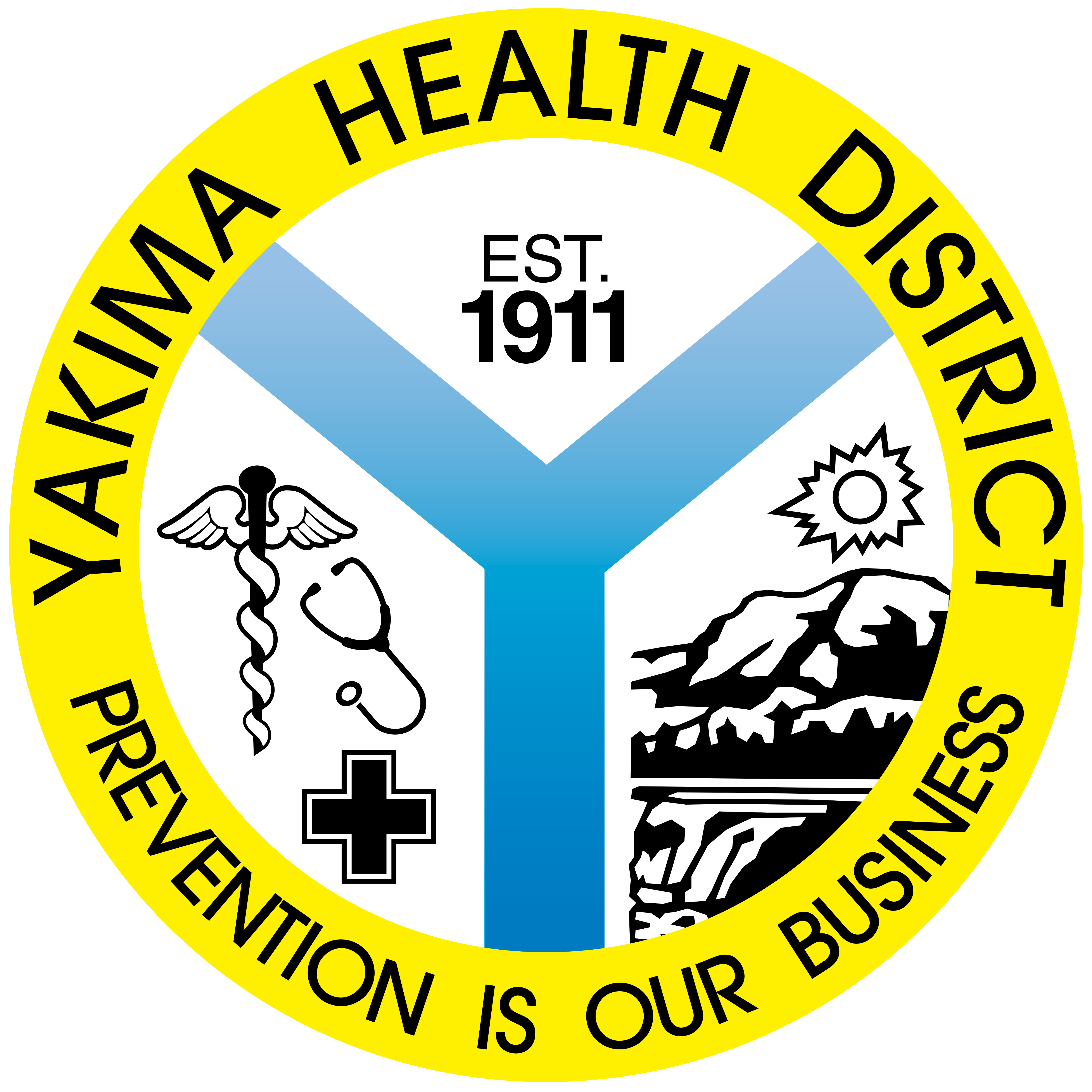Monkeypox in Yakima County
Lab results have confirmed that a Yakima County resident has tested positive for monkeypox. This is the first known case in Yakima County. Yakima Health District staff is working with the individual to identify close contacts and providing them with the JYNNEOS vaccine to prevent further spread. The individual is isolating at home for the duration of their infectious period.
Yakima Health District continues to monitor the monkeypox outbreak in Washington and the United States.
Report possible monkeypox cases immediately upon suspicion, as Washington State Department of Health requires. Call the reporting line at 800-535-5016 ext. 541. Yakima Health District will help you complete an intake form and review exposure guidelines to evaluate close contacts.
Monkeypox is rare and not often seen in the United States. It can cause a rash that looks like bumps, blisters or ulcers. Before the rash, some people have flu-like symptoms, like:
- Fever.
- Headache.
- Muscle aches and backache.
- Swollen lymph nodes.
- Chills.
- Exhaustion.
Transmission
Monkeypox mostly spreads through close, skin-to-skin contact. It is far less likely to spread through the air. The virus can spread from person to person through:
- Contact with the skin or body fluids of an infected person (including sexual contact).
- Contact with virus-contaminated objects (like bedding or clothing).
- Respiratory droplets during direct and prolonged face-to-face contact.
Infection Control in Healthcare Settings
Healthcare workers who enter the room of a patient with suspected or confirmed monkeypox should wear:
- Gown.
- Gloves.
- Eye protection (like goggles or a face shield that covers the front and sides of the face).
- National Institute for Occupational Safety and Health- (NIOSH-) approved particulate respirator e
- Equipped with N95 or higher filter
Testing
Washington has no shortage of monkeypox tests. Ask your lab if they test for monkeypox. Labs currently testing for monkeypox:
- Washington State Public Health Lab (PHL). Use for uninsured patients.
- University of Washington.
- LabCorp.
- Quest.
- Aegis.
- Mayo Clinic.
Follow the lab’s specimen collection procedures.
Reporting
Report possible monkeypox cases immediately upon suspicion. Any patient who is tested for monkeypox is considered a suspect case, regardless of the index of suspicion. Call the reporting line at 800-535-5016 ext. 541. We will help you complete an intake form and review exposure guidelines to evaluate close contacts..
Do not wait for test results to report. This allows us to start case investigation as soon as possible.
Vaccine
Washington received monkeypox vaccine from the Strategic National Stockpile (SNS) to respond to this outbreak. These doses go to jurisdictions with high case counts. We work with DOH to offer close contacts JYNNEOS vaccine. Currently, only close contacts are eligible for the 2‑dose vaccine. We partner with local pharmacies to administer the vaccine to close contacts. As Washington receives more vaccine in the coming weeks, we will follow DOH guidance to offer vaccine to people in high‑risk groups.
Additionally, vaccine is available for the limited number of people in Washington who handle orthopoxvirus specimens in a lab setting. These workers will receive preexposure prophylaxis (PrEP) in accordance with Advisory Committee on Immunization Practices (ACIP) guidance.
Therapeutics
No specific treatment for monkeypox exists. Many people infected with monkeypox virus will have a mild, self-limiting illness without specific therapy. In certain cases, antivirals developed for smallpox, like TPOXX, may be beneficial against monkeypox.
The patient must meet the criteria for TPOXX treatment. If the provider thinks the patient meets the criteria for TPOXX, they can request TPOXX by:
- Ensuring the patient meets the criteria:
- People with severe disease (e.g., hemorrhagic disease, confluent lesions, sepsis, encephalitis, or other conditions requiring hospitalization)
- People who may be at high risk of severe disease:
- People with immunocompromise (e.g., human immunodeficiency virus/acquired immune deficiency syndrome infection, leukemia, lymphoma, generalized malignancy, solid organ transplantation, therapy with alkylating agents, antimetabolites, radiation, tumor necrosis factor inhibitors, high-dose corticosteroids, being a recipient with hematopoietic stem cell transplant <24 months post-transplant or ≥24 months but with graft-versus-host disease or disease relapse, or having autoimmune disease with immunodeficiency as a clinical component)
- Pediatric populations, particularly patients younger than 8 years of age
- People with a history or presence of atopic dermatitis, persons with other active exfoliative skin conditions (e.g., eczema, burns, impetigo, varicella zoster virus infection, herpes simplex virus infection, severe acne, severe diaper dermatitis with extensive areas of denuded skin, psoriasis, or Darier disease [keratosis follicularis])
- Pregnant or breastfeeding women
- People with one or more complications (e.g., secondary bacterial skin infection; gastroenteritis with severe nausea/vomiting, diarrhea, or dehydration; bronchopneumonia; concurrent disease or other comorbidities)
- People with monkeypox virus aberrant infections that include accidental implantation in eyes, mouth, or other anatomical areas where monkeypox virus infection might constitute a special hazard (e.g., the throat, genitals or anus)
- Call the Yakima Health District after hours emergency line (509) 575-4040 option 2
Sexually Transmitted Infections
Individuals are also recommended to get tested for sexually transmitted infections (STIs), such as syphilis, gonorrhea, chlamydia, herpes, and HIV. Symptoms may be similar and, on some occasions, individuals may be infected with both monkeypox and an STI.
Questions?
Questions? Contact Yakima Health District at (509) 575-4040 or (800) 535-5016
More Information
- JYNNEOS vaccine information sheet, CDC.
- JYNNEOS vaccine package insert, Food and Drug Administration.
- JYNNEOS for preexposure vaccination of people at risk for occupational exposure to orthopoxviruses, ACIP recommendations, CDC.
- Federal government announces monkeypox vaccine allotment for Washington, DOH.
- Monkeypox fact sheet, Johns Hopkins Center for Health Security.
